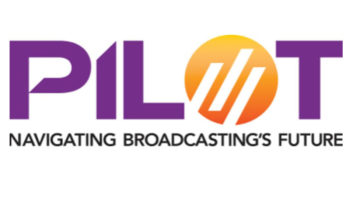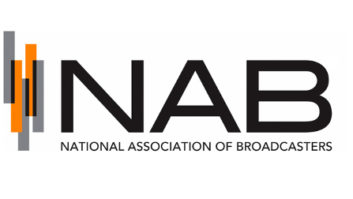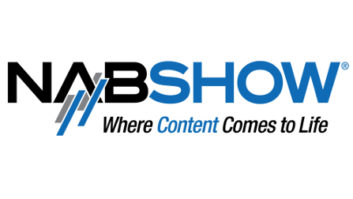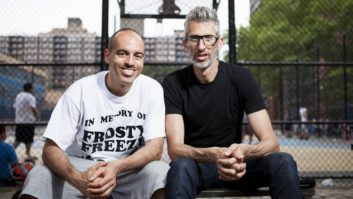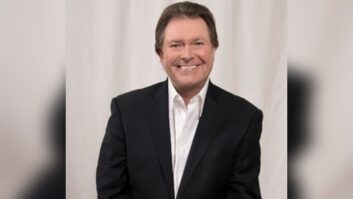WASHINGTON Some of the employees of CBS Television and Infinity Broadcasting are still feeling the effects of the resignation of both groups from NAB; but radio employees seem to be enduring more restrictions than their TV brethren.
At the same time, several other radio groups plan no change in their NAB membership and said a pullout such as CBS/Infinity weakens radio’s voice on issues before regulatory bodies.
However, other sources said the pullout, over the TV ownership caps, could be a moot point if the issue is resolved. The group could rejoin the association at some point if it chose to, sources said.
Among CBS/Infinity employees who felt the effect of the resignation most were those who wanted to attend NAB2001.
Several radio sources told RW they were strongly urged not to attend, and could not participate in panels at the show. Some said they felt their jobs could be in jeopardy if they attended.
Infinity generally did not pay for show registration or travel expenses even before the pullout, they said.
Registration for panelists and moderators is free. A source said NAB did not rescind free registration for Infinity employees who were scheduled to be panelists at NAB2001.
But most attendees are not panelists.
“They’ve made it difficult to go to the show,” said one such source. “If I want to go, I have to take vacation and go at my own expense. … It cuts off my ability to learn.”
There are not that many national learning opportunities for engineers, he said. “My message to corporate management is what we do for them does not happen by magic. In order to keep proficient we need to talk to each other, to learn about new equipment and see possibilities.
“If you cut off the engineering community from what amounts to postgraduate learning, you’re cutting off your nose to spite your face,” he said.
By comparison, the prohibition from taking part in show panels was not apparent for CBS Television employees. At least three participated in sessions: Joseph Flaherty, Robert Seidel and Robert Hess.
A source said NAB received a call specifically stating that Infinity employees could not participate on NAB show panels. It received no such call about the TV employees, said the source.
When asked why the NAB pullout was apparently interpreted differently for the radio and TV divisions, a spokesman for parent company Viacom said, “These are independent operating groups within Viacom. We don’t set policies across the board.”
Several major radio ownership groups have expressed their continued support of the NAB, despite the Infinity resignation.
The Infinity decision “will not change Emmis’ support of the NAB,” said Jeff Smulyan, president and chief executive officer of Emmis Communications, which has 23 radio and 15 TV stations in NAB membership.
“We need to work together as an industry and the NAB is the proper forum for that.”
Bruce Reese, Bonneville International Corp. president and chief executive officer, said the Infinity pullout would have no bearing on his company’s support of the trade association.
“The industry is better off when we speak with one voice, and that should be through the NAB. The NAB has always been a very important organization and it will continue to be so,” he said for the group of 20 radio and two TV stations.
A Clear Channel Communications spokesman said its group, with approximately 1,170 radio stations, remains committed to NAB. “We continue to be a member of NAB and a supporter of its efforts.”
Cox Radio Inc. has 83 member stations. President and Chief Executive Officer Bob Neil called the pullout “unfortunate” and said, “While there may always be individual issues someone may have with NAB, it’s still the best way to present a unified face to the regulatory agencies and Congress.”
Neil said, “Over the years the broadcasting business has been a pretty powerful voice. And I wonder about the dilution of that voice when someone as big as Viacom pulls out.”
Emmis, Greater Media and Clear Channel have representatives on the NAB Radio Board. Some of the other radio groups represented include: Susquehanna Radio Corp., Citadel Communications, Journal Broadcast Group, Regent Communications Inc. and Federated Media.
Richard Ferguson, Cox VP/co-COO, is on the executive committee as immediate past joint board chair. Susquehanna Radio Corp. President/COO David Kennedy is Radio Board Chairman and Federated Media President John Dille is Radio Board Vice Chairman.
Bayard Walters, president and owner of The Cromwell Group Inc. and former NAB Radio Board member, intends to keep his 22 stations in NAB membership. Of the resignation, he said, “Whether CBS is in or out, it will still benefit from the efforts that those of us who decide to participate … put forth.”
“It’s better if we all work together, those of us who are members in all-sized markets … because as far as regulators are concerned, we’re all dumped in the same pot.”
Greater Media Inc. has 18 stations in NAB membership.
The company pays for its six CEs to attend the spring show, said Milford Smith, vice president of radio engineering, who called the spring show “the ultimate venue of broadcast technologies.”
The resignation, which came just before the spring show, also means neither CBS nor Infinity employees can participate in NAB committees.
That includes the National Radio Systems Committee, said spokesman Dana McClintock.
The NAB and the Consumer Electronics Association jointly sponsor the NRSC, a radio standards-setting body. Unlike NAB member-station committees, the NRSC is an open committee and CBS/Infinity could continue to participate if it chooses.
CBS/Infinity participation on the NRSC has not been regular recently, said several sources, who attributed this to a combination of heavy workloads and limited travel budgets. Participants from CBS/Infinity have not attended the last two meetings, which means they can’t vote on NRSC issues.
Yet CBS/Infinity has participated for years in the development of in-band, on-channel digital audio broadcasting. Noting Infinity’s investment in the sole current IBOC developer, iBiquity Digital Corp., one source suggested the companies would continue to support the NRSC process.
“Most engineers try to steer clear of politics. There are just too many things to occupy their time. It’s something GMs and owners get paid to deal with. While many engineers have seemingly been caught in the middle, it’s my sense they know it will blow over and be resolved.”
The decision by parent company Viacom Inc. to withdraw subsidiaries CBS Television and Infinity Broadcasting from the NAB centers around a dispute over the television network’s opposition to a federal cap that prevents them from owning stations that reach more than 35 percent of U.S. households (RW, April 25).
The NAB supports the federal limits on station ownership. Viacom called the ownership cap “an outmoded regulatory constraint on broadcasters.”
The CBS and Infinity departure leaves the NAB without radio’s top-earning group in 2000. BIA Research figures show Infinity’s 180 radio stations had gross revenues of $1.9 billion. Estimated revenues for 35 CBS-owned television stations in 2000 were $1.6 billion.
The CBS/Infinity pullout leaves ABC Television, owned by Walt Disney Co., as the only major network member of the trade association. NBC and Fox previously withdrew from the NAB over the same issue.





